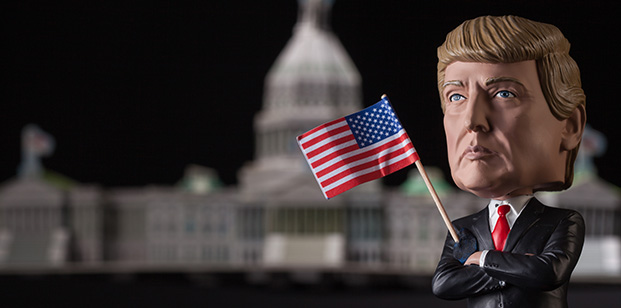The firing of a Federal Reserve governor brings Trump closer to a partisan central bank.
- Donald Trump’s firing of Lisa Cook has roused fears over central bank independence
- Long bond yields and the Dollar have both reacted negatively to the news
- In the long run, a partisan Federal Reserve may not deliver lower borrowing costs
Who knew that a single Federal Reserve Committee member could be so important? The firing of governor Lisa Cook has seen long bond yields rise and the Dollar fall amid concerns over central bank independence. The worry is that the US will return to the bad old days of politicians setting interest rates to suit their own agenda rather than the economic needs of the country.
Donald Trump fired Cook saying he had “sufficient reason” to believe she had made false statements on mortgage agreements. She denies the charge, says she will contend her sacking and continues to carry out her duties. If she had slipped off quietly, it may have had even more impact on treasury and currency markets. It shows they still retain some hope that bank independence can be preserved.
Kyle Rodda, senior financial market analyst at Capital.com, said: “The move is clearly motivated by a desire to stack the Fed with Trump acolytes and policy doves.” It makes the departure of Biden appointee Adriana Kugler in early August look more suspicious. Her seat is likely to be filled by tariff architect Dr Stephen Miran, who has been a strong supporter of Trump’s economic agenda. Miran's nomination, if approved, would add a near-certain vote in support of lower interest rates in September.
There are more worries in the longer-term. Jay Powell's term as chair comes to an end in May 2026, although he is due to remain as a governor until 2028. The voices of reason and moderation may slowly ebb away. The result may be interest rates vastly out of step with inflationary pressures.
Trump’s actions may prove to be counter-productive. He may get the ‘win’ of lower interest rates, but the bond vigilantes may ensure that borrowing costs remain high in the US. Ultimately, he cannot control how much international investors are willing to pay for US debt.
Overall, it highlights the fragility of bond markets. While countries are supporting vast debt burdens, with few solutions for addressing them, policymakers will be in thrall to the whimsy of bond vigilantes. The UK has had its own humbling experiences, with Liz Truss and, more recently, with Rachel Reeves’ tears in the House of Commons. Donald Trump may pack the Federal Reserve with cronies, force them to cut rates and the find it does nothing at all to change the outlook for the US economy.









